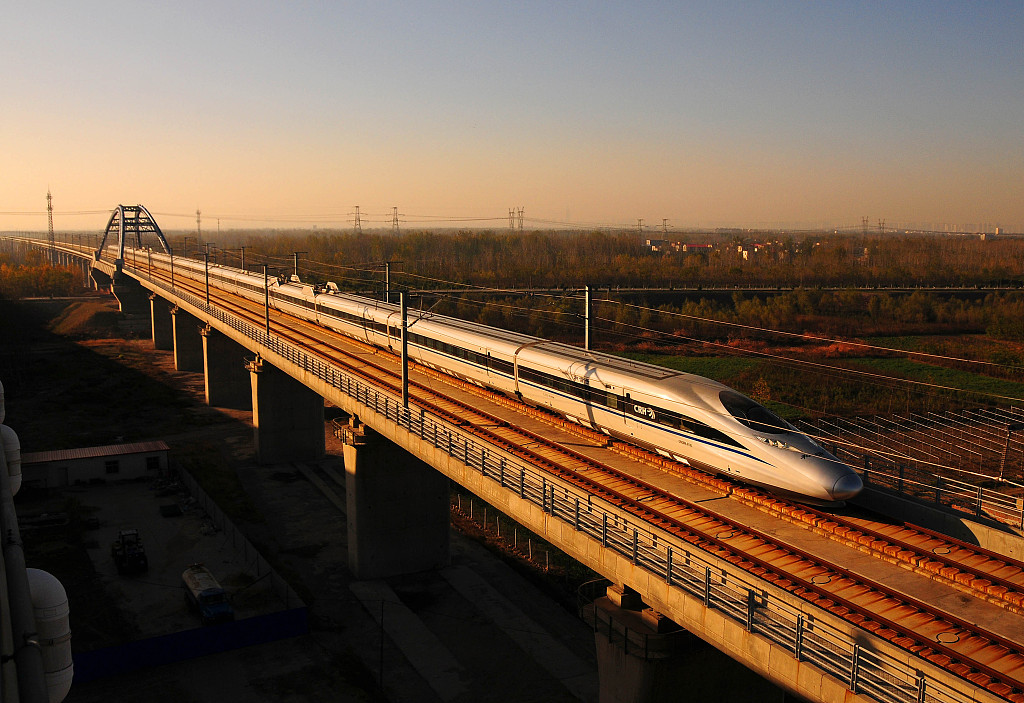
Photo: VCG
China ranked first in the world in terms of the total mileage of high-speed railway and expressway in 2018, according to a report released by the National Bureau of Statistics on Tuesday, Xinhua reported.
The report focused on economic and social development achievements during the past 70 years since the founding of the People's Republic of China. It pointed out that China's transportation infrastructure has accelerated its network formation and improved its comprehensive transportation support capacity.
By 2018, the total length of China's railways in operation had reached 132,000 kilometers, a five-fold increase over 1949, according to the report. After a decade of rapid construction, the ‘four vertical and four horizontal’ high-speed railway network, which only exists in China, has been completed and put into use.
The total mileage of high-speed railway in operation was 30,000 kilometers by the end of 2018, 44.5 times that of 2008, and accounted for more than two-thirds of the total mileage of high-speed railway in the world, making China first in the world.
The road network runs in all directions, and the construction of highways is remarkable. Statistics show that in 2018, the total length of roads reached 4.85 million kilometers, 60 times that of 1949, and the total length of expressways was 143,000 kilometers, first in the world.
Construction of large ports was accelerated. The report said that in 2018, China had 23,919 production berths, 148.6 times the number in 1949. Among them, 10,000-ton class and above berths increased from 38 in 1957 to 2,444 in 2018. Chinese ports accounted for seven of the world's top 10 ports in terms of container throughput.
In addition, the airline network and airport scale continued to expand. Statistics show that in 2018, there were 4,945 scheduled flights, 412.1 times the number in 1950. The number of cities with scheduled domestic flights increased from 7 in 1950 to 230 in 2018.
(Compiled by Yu Lidong)


